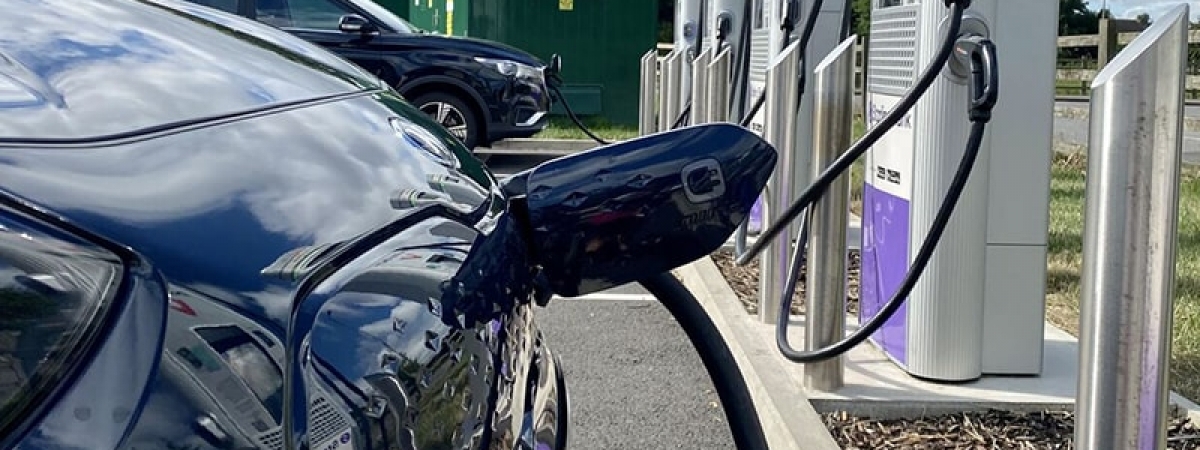
...Courtesy of Natalie Middleton
Jeremy Hunt predicted half of new cars would be electric by 2025 in the run-up to the 2030 ICE ban and said that electric cars, vans and motorcycles would begin to pay VED in the same way as petrol and diesel vehicles, although on the lowest rates.
The measure, which will be legislated for in the Autumn Finance Bill 2022, will affect both new and existing electric cars and vans.
New zero-emission cars registered on or after 1 April 2025 will be liable to pay the lowest first year rate of VED, which applies to vehicles with CO2 emissions 1 to 50g/km and currently stands at £10 a year. From the second year of registration onwards, they will move to the standard rate, currently £165 a year.
But while zero-emission cars first registered between 1 April 2017 and 31 March 2025 escape the first-year rate, they will have to pay the standard rate, as above.
And zero- and low-emission cars first registered between 1 March 2001 and 30 March 2017 currently in Band A will move to the Band B rate, currently £20 a year.
The Treasury also said the Expensive Car Supplement exemption for electric vehicles would end in April 2025. At present, all cars with a list price of more than £40,000 have to pay an extra £355 a year for five years after the first year’s CO2-based charge, but zero-emission cars are exempt.
Meanwhile, zero-emission vans will move to the rate for petrol and diesel light goods vehicles, currently £290 a year for most vans. Zero-emission motorcycles and tricycles will move to the rate for the smallest engine size, currently £22 a year. And rates for Alternative Fuel Vehicles and hybrids will also be equalised.
The much-anticipated announcement forms part of efforts to plug a growing black hole in vehicle-related income from both VED and fuel duty as drivers go electric. A forecast from the Office for Budget Responsibility had indicated that fuel duty and VED revenue would fall to £2.1bn by 2026-27, compared to the estimated £35bn that is currently raised.
Lauren Pamma, Programme Director at the Coalition for the Decarbonisation of Road Transport (CDRT), said: “As fossil fuel powered vehicles leave the road, we are left with a significant hole in the budget from both the £25bn loss in fuel duty revenue, and the loss of vehicle excise duty (VED) revenue. Removing the exemption from VED for EVs is a logical and necessary step to fill this hole.
“However, it is important to maximise the benefits to EV ownership compared to fossil fuel vehicles - to that end the government has made the right call by keeping VED lower for EVs. While further taxation on EVs will be necessary, it is crucial the government does not move too fast in increasing taxes on EV drivers and so risk slowing the transition.”
EVA Scotland director, Neil Swanson said “EVA Scotland welcomes the changes to road tax for electric vehicle drivers if it is designed as a fair and representative charge reflecting that EVs represent a means of transport that causes far less damage to roads”.
Tune in this afternoon’s Drivetime on BBC Radio Scotland to hear more from Neil Swanson.

Comments
By Colin Preston, 3 years ago
It was only expected that the hole in the public purse created by the uptake in electric vehicles would result in this tax and that’s fair enough. However, there’s an inconsistency if pre 2017 low emmission vehicles pay £20 when no emissions new electric vehicles pay a minimum of £165 from 2025 and probably £520 with the expensive car supplement.
By Eric Armstrong, 3 years ago
Unfortunately this means that when my Tesla3lease ends in 2024 I will be moving back to an ICE as I can’t afford £520 annual road tax
Will buy a second hand cheap diesel
By Martin Winlow, 3 years ago
Well, it was nice whilst it lasted (I *have* had the benefit for over 10 years, so can’t complain!).
However, do I gather that my 2015 Tesla Model S’ VED will cost £20 from 2025?
@ Colin Preston: I would agree if ‘low emission’ will include daft hybrids but not if this will only apply to ‘real’ EVs as I would like to think HMG are (for once) sensibly rewarding early adopters that ‘led the way’ as well as encouraging retention of older EVs.